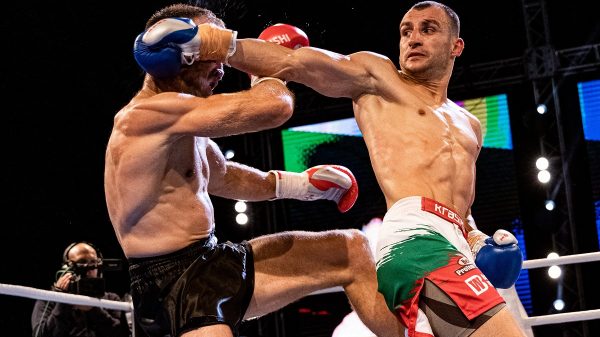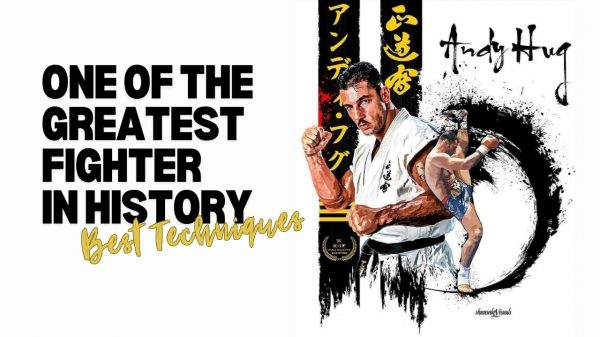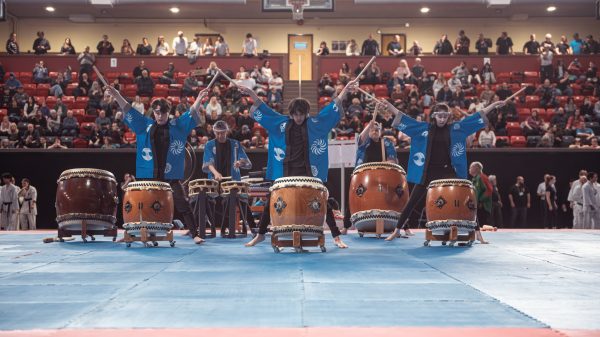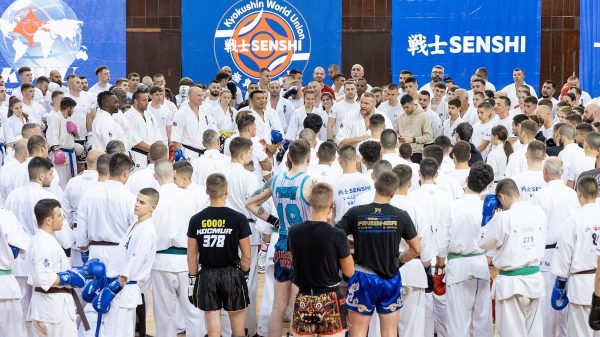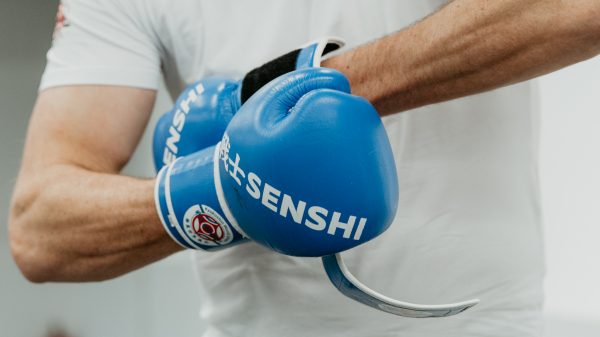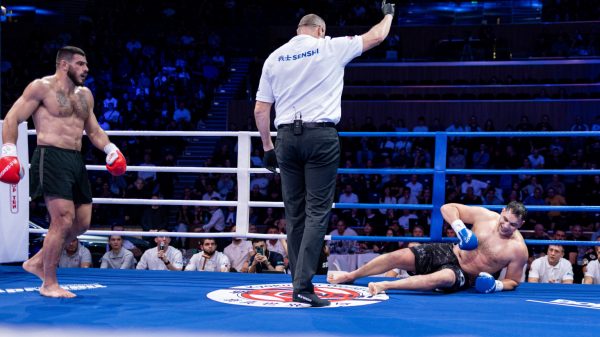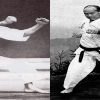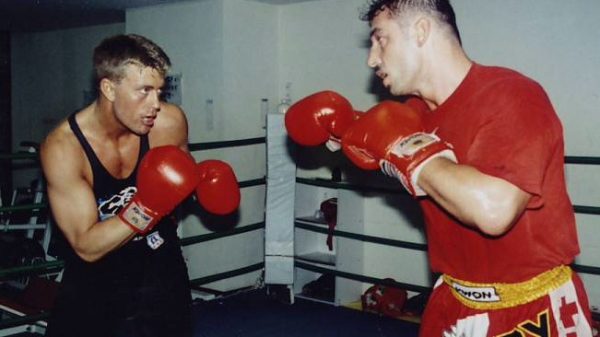According to a poll from the National Alliance for Youth Sports, around 70 percent of kids in the United States stop playing organized sports by the age of 13 because they claimed: “it’s just not fun anymore.” Another recent study by George Washington University points out that 90 percent of kids said they played sports because they *were* fun.
The loss of fun for kids is often a result of over-involvement by parents, relentless pressure by coaches, or the lack of playing time when the child is not considered one of the team’s top competitors. Yet, none of these reasons for sports burnout and lack of fun seem to apply to the practice of karate.
Why is this you asked? Karate offers children the opportunity to develop confidence and self-discipline. It can also inspire its participants to build the foundation for personal fitness at an early age.
One of the best things about karate as a combat sport is that everyone gets an opportunity to participate and develop their skills. No one is forced to sit on the sidelines or make tryouts in hopes to score a place on the team. Another great thing is it is a surprisingly easy activity to get involved in. Last but not least, Karate doesn’t require much in terms of equipment beyond the “gi” or traditional uniform.
With that, here are 5 reasons why I believe karate training can serve as an inspiration for lifelong learning in children:
1. You can create your own dojo at home
If you’re tired of loading and unloading a carload of athletic gear and uniforms around, karate will be a welcome change. If you have a spare room or open basement, it’s relatively easy to make a complementary dojo at home that will help your kids to practice on top of their regular lessons at their ‘real’ dojo: Here’s what you need:
Rebreakable boards – Kids enjoy the excitement of (safely) breaking boards as they practice the art of karate. As they get stronger and develop better techniques, they can transition from the easy-to-break variety of breakable boards to the more durable type. Plus, no more waste from purchasing new boards or dealing with messy slivers or wood debris to clean up when they’re done!
Bobby Bully – This is a lifelike punching bag with a face that is fun for kids to punch, kick, or elbow during practice. When well made, the Bobby Bully can withstand years of ‘abuse’ as kids practice their self-defense techniques.
Online karate lessons – Some dojos offer kids the chance to “practice karate from the living room.” Classes include pre-recorded and life lessons that take you from white belt level practice all the way to black belt level. It even offers weapon instruction once kids achieve their orange belt. That said, I highly recommend treating these online classes as complimentary classes as opposed to their sole source of learning martial arts. This is because, particularly when they’re just beginning, safety is an utmost concern and it’s best to ensure that our children have access to the guidance and supervision of martial art professionals to prevent unnecessary martial arts-related accidents or injuries.
2. Karate can be a family affair
Kids as young as three years old can practice right alongside their older siblings and parents. The benefit of families learning together is that it eliminates the “coaching” role that some parents tend to take on during the car ride home from typical team sports. Plus, it allows parents the opportunity to master new skills and improve their own fitness instead of sitting on the sidelines.
3. Karate practice can be kept all year round, alongside the practice of other sports
Since there is no ‘formal’ karate season, students can practice and keep up their skills year-round! It’s also complementary to many other sports. For example, football coaches love martial artists because they don’t jump offsides.
Dance teachers are continually wowed by the focus and self-confidence that their students possess when they are also enrolled in martial arts classes. And by its very nature, karate is a practice that encourages a level of fitness and personal readiness that makes for better overall athleticism at any age.
4. Earning a black belt serves as an important lesson in goal attainment
With karate, unlike many other sports, you are constantly learning new techniques. Mastering the skills needed for your next belt promotion means gaining confidence and self-discipline which are important lifelong skills. It also keeps karate practices from becoming boring or predictable.
Advancing from belt to belt, or even earning a new stripe for a belt is highly motivating and encourages kids to set and achieve their long-term goals. Earning a black belt can take anywhere between three to seven years. More importantly, holding a black belt is an achievement that a child will likely treasure and be proud of for many years to come.
5. Karate can be enjoyed outside of the dojo
There are many other ways that kids can stay motivated and excited about learning karate. Movies – particularly classics like The Karate Kid series are inspiring. The popularity of any Jackie Chan movie is another great example of how karate can be enjoyed beyond the dojo.
For those with an active and a more adventurous lifestyle, participating in a martial arts training camp, retreat, or other martial arts experiences (joining a competition, etc.) can add a whole new level of fun and excitement to their usual training regime.
Final Thoughts
So there you have it – Five great reasons to sign your kids up for karate or other martial arts disciplines that they may be interested in. If you’re still not convinced, I recommend for you and your child visit your neighborhood dojo and request to sit in for a class or two. This way, you can find out firsthand whether martial arts training would indeed be suitable for your little ones.
Source: www.bookmartialarts.com


